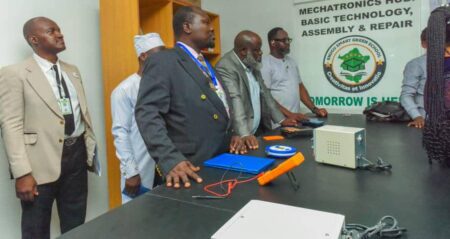A United Nations advisory group has called on governments worldwide to take a more proactive role in the development of education systems, emphasizing the critical importance of accessible, quality education in achieving sustainable development goals. The appeal was made during a high-level meeting at the UN headquarters in New York, where experts highlighted the urgent need for increased investment and innovative policies in the education sector.
The UN Education Advisory Panel, composed of prominent educators, policymakers, and representatives from international organizations, presented a comprehensive report outlining key strategies for governments to enhance their educational frameworks. The report, titled “Education for Sustainable Futures,” underscores the vital role of education in fostering economic growth, social cohesion, and global peace.
“Education is the foundation upon which we build inclusive and prosperous societies,” said Audrey Azoulay, Director-General of UNESCO, who chaired the meeting. “Governments must take the lead in ensuring that every child has access to quality education, which is essential for personal development and the achievement of our collective global goals.”
The report calls for increased public funding for education, particularly in low-income countries where educational disparities are most pronounced. It also advocates for the adoption of inclusive policies that address the needs of marginalized groups, including girls, children with disabilities, and those from impoverished backgrounds.
“Investing in education is investing in the future,” stated Henrietta Fore, Executive Director of UNICEF. “Governments must prioritize education in their national agendas and allocate the necessary resources to build robust and inclusive educational systems. This includes not only funding but also the implementation of effective policies and programs.”
The advisory group emphasized the importance of early childhood education, calling for universal access to pre-primary education as a critical step in ensuring lifelong learning and development. The report also highlights the need for teacher training and professional development, as well as the integration of technology in classrooms to enhance learning outcomes.
“Teachers are at the heart of education,” noted Dr. Koumbou Boly Barry, UN Special Rapporteur on the Right to Education. “We must ensure they are well-trained, adequately supported, and fairly compensated. Additionally, embracing digital tools and innovative teaching methods can significantly improve educational quality and accessibility.”
The meeting also addressed the impact of the COVID-19 pandemic on education, which has exacerbated existing inequalities and disrupted learning for millions of students worldwide. The UN group urged governments to develop resilient education systems capable of withstanding future crises and ensuring continuity of learning.
“The pandemic has shown us the fragility of our education systems,” Azoulay remarked. “We must build resilience into these systems to protect the right to education for all children, even in times of crisis. This includes leveraging technology and ensuring that all students have access to digital learning resources.”
In response to the report, several governments pledged to increase their education budgets and implement the recommended policies. Representatives from countries including Norway, Canada, and Kenya shared their plans to enhance educational access and quality within their respective nations.
“We are committed to expanding educational opportunities for all children in Kenya,” said George Magoha, Kenya’s Cabinet Secretary for Education. “This includes increasing our investment in school infrastructure, teacher training, and digital learning initiatives to ensure that no child is left behind.”
The UN Education Advisory Panel’s call to action serves as a timely reminder of the critical role of education in shaping a sustainable and equitable future. As governments worldwide respond to this call, the hope is that concerted efforts will lead to significant improvements in global education systems, ultimately contributing to the achievement of the United Nations’ Sustainable Development Goals by 2030.
